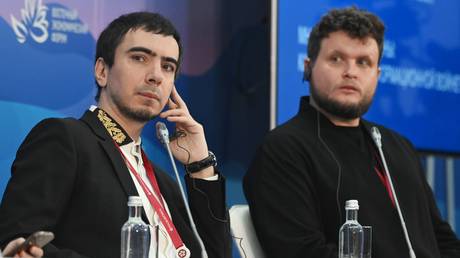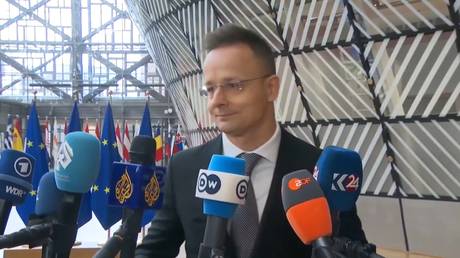
Intelligence staff in Berlin have reportedly accused Moscow of using impersonators to discredit Western governments
German officials have been warned to be on their guard against Russian pranksters when answering phone calls, Bild has claimed. The media outlet cited a memo from the Federal Office for the Protection of the Constitution (BfV), which claimed Moscow was using impersonators to undermine Western governments.
Several top-ranking European officials, including Latvian Foreign Minister Krisjanis Karins and Italian Prime Minister Giorgia Meloni, have fallen for prank calls by Russian duo Vovan and Lexus in recent months. The conversations have included the politicians revealing their thoughts on sensitive topics such as the Ukraine conflict.
In a report on Tuesday, Bild claimed to have seen a warning directed by the German domestic intelligence service to the mayor of Hamburg and senators, urging them to take “precautionary measures against a current Russian disinformation campaign.”
The outlet further quoted an anonymous BfV officer as saying that the “faking of false identities is used deliberately to spread false information and publicly make Western politicians look like fools.” Bild’s source went on to claim that “this is part of the Russian secret service’s strategy.”
On Tuesday, Vovan and Lexus – real names Vladimir Kuznetsov and Aleksey Stolyarov – published a recording of a video call they had held with Latvian Foreign Minister Karins, who previously served as prime minister. Posing as a senior African official, the pair asked the diplomat about topics including Western support for Ukraine.
Karins acknowledged that most European nations are “not happy about” about the high price they are paying for Kiev’s defense, claiming, however, that the general consensus is that there is no other option.
The Latvian Foreign Ministry later confirmed that Karins had been pranked.
The Russian comedians also recently spoke with the prime minister of neighboring Estonia, Kaja Kallas.
However, the pair’s prank call with Italian Prime Minister Meloni, dating from late September but made public in early November, perhaps gained the most media attention.
In the conversation, the Italian leader admitted there was “a lot of fatigue” with the Ukraine conflict, arguing it was near “the moment in which everybody understands that we need a way out.”
According to Italian media, Meloni was furious after discovering she had been duped, and later insisted that her remarks were essentially “nothing new.”
A diplomatic adviser to Meloni’s office did, however, step down earlier this month, with the prime minister blaming the incident on a “superficiality in proceeding.”




